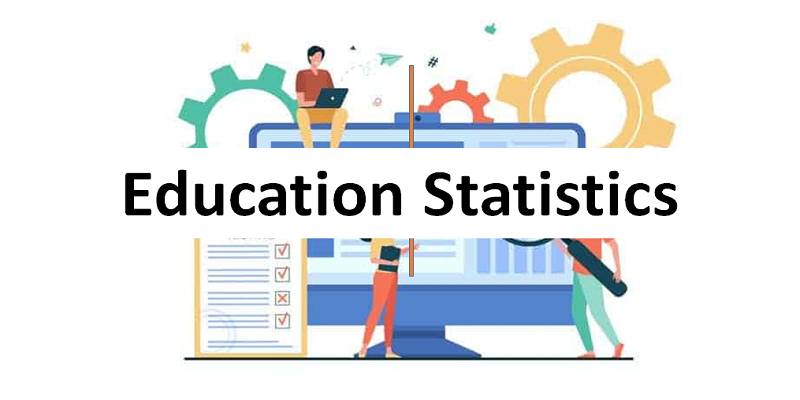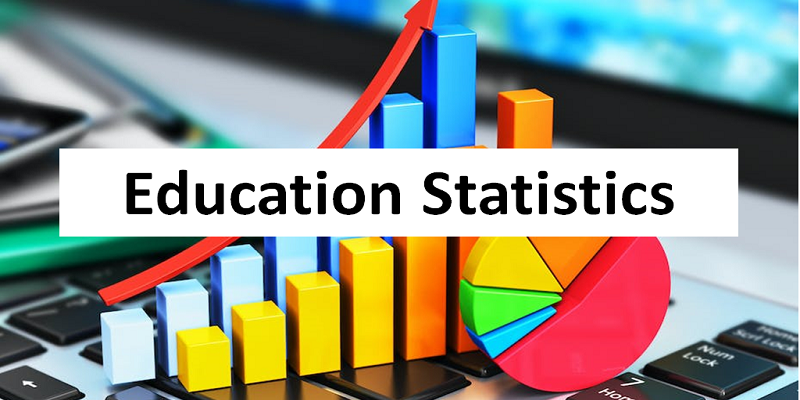By Peter OLUKA
Education data typically involves data compiled from schools on graduation rates, drop-out rates, test score averages, and the most vital – external examination performances.
Often, education data is used to measure the success of a State, Region, Institutions, or Individuals and benchmark them against others to improve your own work, products, or processes.
Nowadays, most States publish annual reports ‘detailing’ education data meant to hold schools accountable, but why are the students’ success rates at examinations not improving?
It simply means there’s a problem. The information presented in most of these annual reports or scorecards is not always reliable. And the fault lies in the way the data is sourced, compiled and presented.
What exactly goes wrong? How does data become inaccurate? And where can students, parents, schools, researchers, businesses and the government get accurate data about schools’ performances with regard to learning and examinations in Nigeria?
Missing Data
I can boldly say that the ‘missing data’ is in the ‘vault’ of the 71-year-old West African Examinations Council (WAEC) established in 1952 to be a world-class examining body, adding value to the educational goals of its stakeholders. How?
Yes, many reports churn out of researches or academic exercises lack sufficient and accurate data. In many cases, data was not available on demographics like gender, ethnicity, income level, or disabilities. On top of that, most reports can point to the exact key performance indicators.
Takeaway > Many challenges in the educational sector will remain unsolved without access to accurate data. Data!
Let’s break it down: Increase in infrastructural decay, limited resources including personnel, and/or adequate funding in the education sector are traceable to a lack of accurate, adequate and real-time access to data for planning and decision-making.
The UN recently released a damning report that only 15 per cent of Nigerians have access to electricity, while UNESCO states that only 24 percent receive secondary education or higher.
What statistics like these throw to our faces are the reasons an overwhelming number of Nigerian children lack access to basic education, even in a 21st-century world.
Therefore, a data-driven approach can help address problems such as the lack of infrastructure by using local statistics to identify areas where progress can be made.
For corporate organisations, sometimes it takes just one individual to come up with an innovative new approach that gives your organisation the competitive edge, but more often than not, it requires the collaboration of various different teams and the combination of lots of different data sources.
In today’s fast-paced and artificial intelligence (AI) driven world, most executives agree that data-driven operations across lines of business are key to a winning strategy.
Illustrating that point is the 85% increased investment in digital capabilities and 77% increased investment in IT, as reported in the 2022 Gartner CEO and Senior Business Executive Survey. Giving your employees the ability to access and make sense of their data, whether they sit within technical teams or not, is therefore crucial to your success.
Your data needs to be democratised across the business, although this is often harder than it would seem.
According to New Vantage Partners’ Data and AI Leadership Executive Survey 2022, only 27% of organisations have managed to nail this, with another 19% struggling to establish a data culture.
Through 2025, 80% of organisations seeking to scale digital business will fail because they don’t take a modern approach to data and analytics governance, as stated by Gartner’s State of Data and Analytics Governance.
Unfortunately, modernising tech stacks and migrating to the cloud is not enough to put the right data in the right hands of everyone across the business. Organisations must modernise their governance practices to fully uphold their efforts.
For instance, if an Education Technology (EdTech) startup can find out why there aren’t enough schools in a certain area, they can use census data to determine how many students live there.
Upon completion of that phase, they move further to collaborate with government officials to work out what must be done — maybe constructing more schools or finding ways to transport students who currently walk long distances to school each day.
How about researchers? It is a no-brainer that ‘poor-quality data can have serious effects on later analysis. Data containing errors of commission or omission have the potential of throwing off analytical calculations, which may then lead to incorrect conclusions.
Real-Time Access to Data is the Solution
The best way to describe this is to see education data as an apparatus that receives and uses inputs to help run the educational process, producing outputs that are tangible and/or measurable. Data use deepens critical thinking and decision-making by parents, teachers, students, educational institutions, researchers, donor agencies/NGOs, businesses and the government.
Thus, collecting and analyzing data to determine why children are out of school will allow you to take actionable steps to reduce these numbers. For example, if you find that many young girls drop out after their first menstruation cycle (usually around age 12 or 13), you can focus resources on providing private sanitation facilities for girls at their schools.
This will help eliminate hygiene-related reasons for young girls dropping out of school and ensure they stay engaged with education.
By collecting data about why children aren’t enrolled in school, it is possible to make informed decisions about how best to address your target population’s needs.
You can also use data to measure how effective interventions have been in reducing dropout rates. This information can be used by decision-makers to create programs tailored specifically to your region and local culture.
In addition to focusing on specific groups based on location and demographics, you can collect data from each student who has dropped out of school.
So, innovative solutions informed by high-quality data and evidence can help improve school performance and keep children in school, especially those who are most at risk of dropping out.
Currently, 1 in 6 Nigerian students is not enrolled or attends irregularly, but with proper attention to data, a concerned stakeholder can make sure that not one more Nigerian child has to grow up without an education. This will require political will, effective planning, and coordination between federal and state government officials as well as local communities.
Well, there is light at the end of the tunnel, as the West African Examinations Council (WAEC), is taking the bull by the horn through the introduction of an artificial intelligence-driven Education Statistics (EduStat) platform.
Find out more about the potential of EduStat in my next piece…
*Peter Oluka is the Editor of TechEconomy, a Lagos-based media startup. You can follow Peter on Twitter @PeterOlukai.

